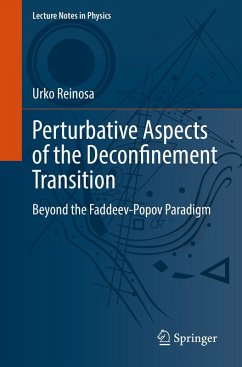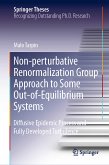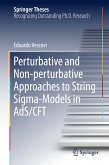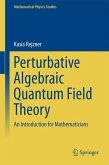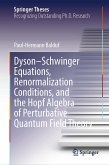This book offers an original view of the color confinement/deconfinement transition that occurs in non-abelian gauge theories at high temperature and/or densities. It is grounded on the fact that the standard Faddeev-Popov gauge-fixing procedure in the Landau gauge is incomplete. The proper analysis of the low energy properties of non-abelian theories in this gauge requires, therefore, the extension of the gauge-fixing procedure, beyond the Faddeev-Popov recipe.
The author reviews various applications of one such extension, based on the Curci-Ferrari model, with a special focus on the confinement/deconfinement transition, first in the case of pure Yang-Mills theory, and then, in a formal regime of Quantum Chromodynamics where all quarks are considered heavy. He shows that most qualitative aspects and also many quantitative features of the deconfinement transition can be accounted for within the model, with only one additional parameter. Moreover, these features emerge in a systematicand controlled perturbative expansion, as opposed to what would happen in a perturbative expansion within the Faddeev-Popov model.
The book is also intended as a thorough and pedagogical introduction to background field gauge techniques at finite temperature and/or density. In particular, it offers a new and promising view on the way these techniques might be applied at finite temperature. The material aims at graduate students or researchers who wish to deepen their understanding of the confinement/deconfinement transition from an analytical perspective. Basic knowledge of gauge theories at finite temperature is required, although the text is designed in a self-contained manner, with most concepts and tools introduced when needed. At the end of each chapter, a series of exercises is proposed to master the subject.
The author reviews various applications of one such extension, based on the Curci-Ferrari model, with a special focus on the confinement/deconfinement transition, first in the case of pure Yang-Mills theory, and then, in a formal regime of Quantum Chromodynamics where all quarks are considered heavy. He shows that most qualitative aspects and also many quantitative features of the deconfinement transition can be accounted for within the model, with only one additional parameter. Moreover, these features emerge in a systematicand controlled perturbative expansion, as opposed to what would happen in a perturbative expansion within the Faddeev-Popov model.
The book is also intended as a thorough and pedagogical introduction to background field gauge techniques at finite temperature and/or density. In particular, it offers a new and promising view on the way these techniques might be applied at finite temperature. The material aims at graduate students or researchers who wish to deepen their understanding of the confinement/deconfinement transition from an analytical perspective. Basic knowledge of gauge theories at finite temperature is required, although the text is designed in a self-contained manner, with most concepts and tools introduced when needed. At the end of each chapter, a series of exercises is proposed to master the subject.
Dieser Download kann aus rechtlichen Gründen nur mit Rechnungsadresse in A, B, BG, CY, CZ, D, DK, EW, E, FIN, F, GR, HR, H, IRL, I, LT, L, LR, M, NL, PL, P, R, S, SLO, SK ausgeliefert werden.

